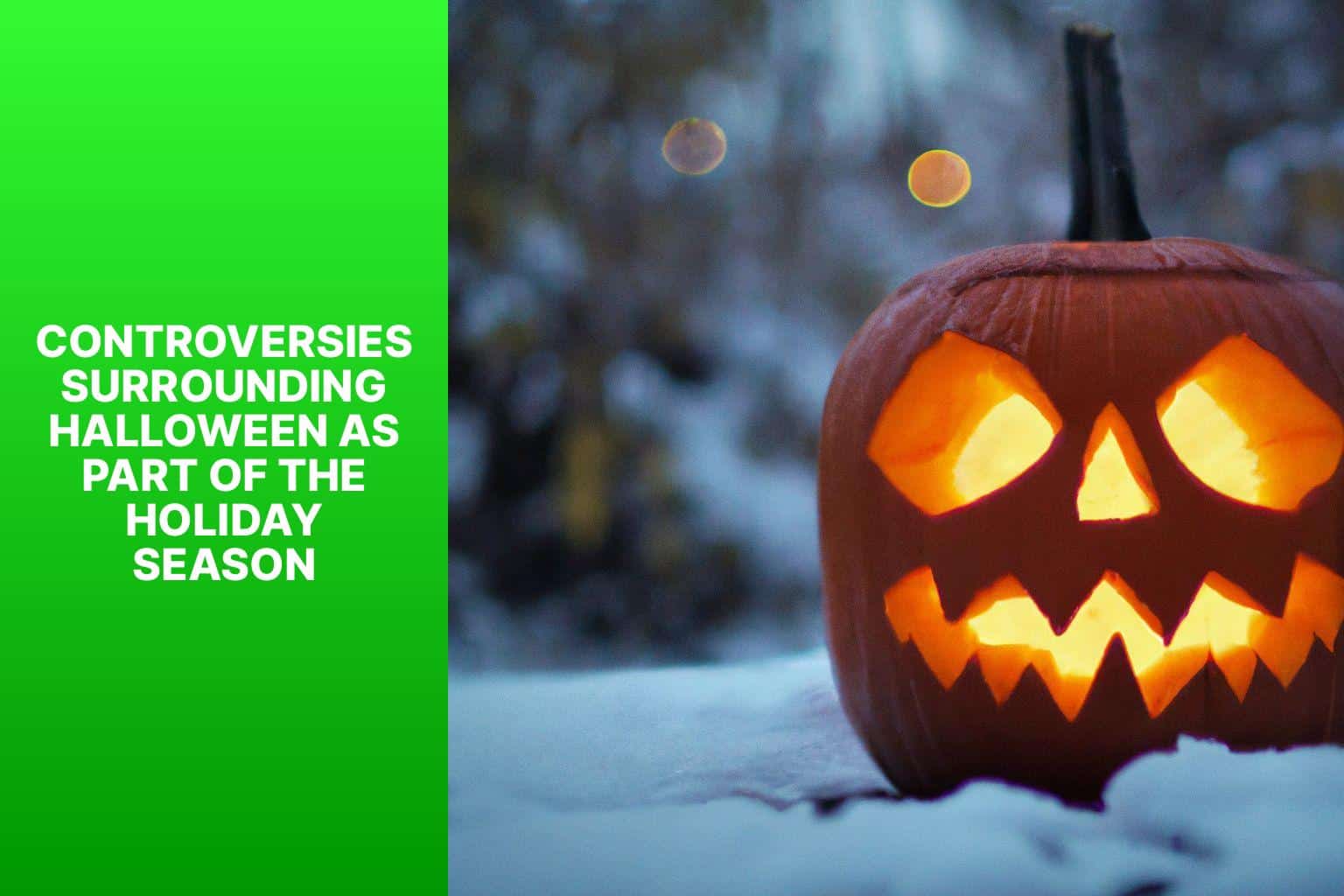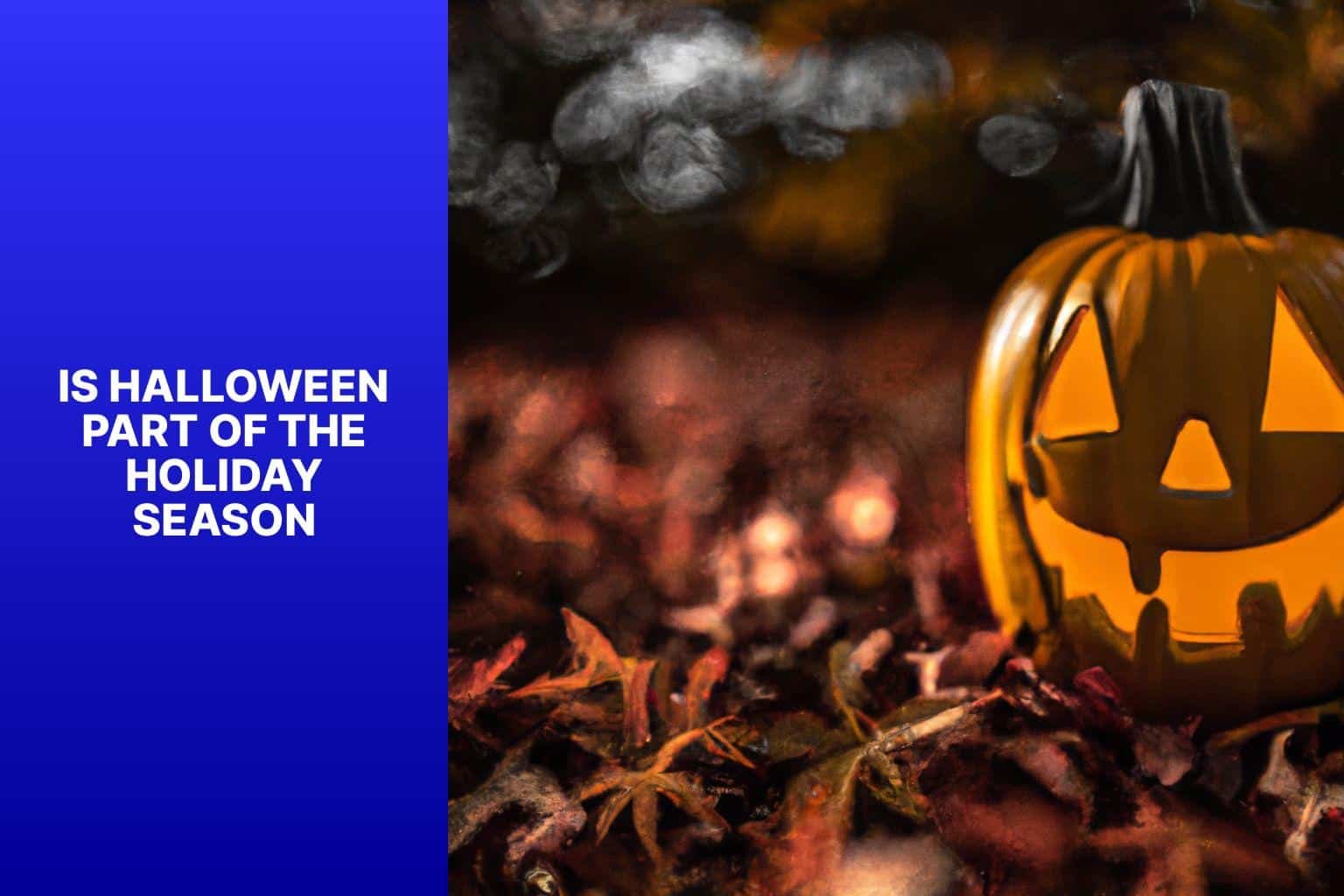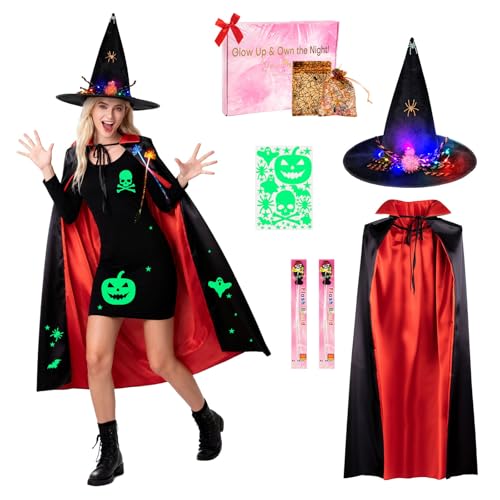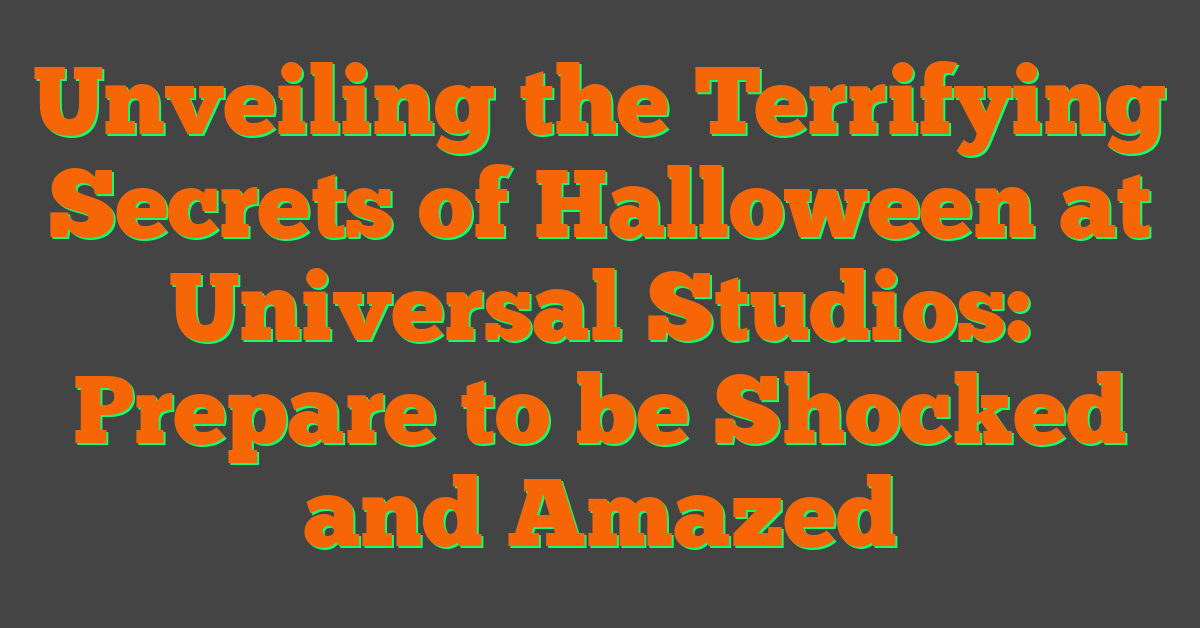The holiday season is traditionally associated with joy, celebration, and festivities. It typically includes various holidays such as Christmas, Hanukkah, and New Year’s. The inclusion of Halloween as part of the holiday season has been a topic of debate and controversy. To understand whether Halloween should be considered part of the holiday season, it is essential to examine the factors that define the holiday season and analyze the arguments both in favor and against Halloween’s inclusion.
The definition of the holiday season varies among individuals and cultures. It typically encompasses a period marked by religious, cultural, or festive events that bring people together in a spirit of celebration and joy. It is often characterized by decorations, gift-giving, special meals, and an overall sense of goodwill.
Controversies surrounding Halloween’s inclusion in the holiday season stem from factors such as its historical and cultural origins, religious perspectives, and concerns about commercialization and consumerism. Some argue that Halloween, with its roots in ancient Celtic and Christian traditions, has distinct themes and practices that differentiate it from other holidays celebrated during the season.
On the other hand, proponents of considering Halloween as part of the holiday season point to shared festive atmospheres, similar traditions and celebratory elements, and the inclusion of Halloween-themed activities during the holiday season. They argue that Halloween adds to the overall spirit of celebration and can be viewed as a time for communities to come together and enjoy shared cultural practices.
Opponents argue that Halloween’s different themes and significance, along with the separation of secular and religious celebrations, justify its exclusion from the holiday season. They believe that maintaining a distinction between Halloween and other holidays helps preserve the unique cultural and religious aspects associated with each celebration.
Ultimately, whether Halloween is considered part of the holiday season is subjective, varying from person to person and influenced by cultural, religious, and personal beliefs. Understanding the different arguments can contribute to a well-rounded discussion on the topic and allow for a deeper appreciation of the diverse traditions that make up the holiday season.
Key takeaway:
- Halloween as part of the holiday season: Halloween is often considered part of the holiday season due to its shared festive atmosphere and inclusion of Halloween-themed activities during that time.
- Controversies surrounding Halloween’s inclusion: Some controversies arise from the historical and cultural origins, religious perspectives, and concerns about commercialization and consumerism.
- Different themes and significance: Arguments against considering Halloween as part of the holiday season highlight the different themes and significance it holds compared to other holidays.
What Defines the Holiday Season?

Photo Credits: Rickyshalloween.Com by Joe Brown
The holiday season, also known as the festive season, encompasses a variety of cultural and religious festivities that take place at the end of the year. These celebrations provide people with the opportunity to take time off from work or school and engage in special traditions and gatherings with family and friends, thereby fostering a sense of joy and togetherness.
One of the defining aspects of the holiday season is the religious observances that are associated with it. Holidays like Christmas and Hanukkah hold significant religious meaning, and during this time, special ceremonies and rituals are performed to honor and celebrate these traditions.
Another characteristic of the holiday season is the festive decorations. Bright lights, colorful wreaths, and glittering ornaments are commonly used to adorn homes and public spaces, creating a cheerful and lively ambiance that adds to the overall celebrations.
Gift-giving is a prevalent tradition that is synonymous with the holiday season. It is a way for people to express their love and appreciation for one another by giving thoughtful and meaningful presents. This act of generosity further enhances the spirit of the season.
Special food and drinks also play a vital role in defining the holiday season. Traditional dishes and treats, ranging from succulent roast turkey to delectable gingerbread cookies, are prepared and shared among loved ones. These culinary delights contribute to the festive atmosphere and bring people together over a shared enjoyment of food.
Above all, the holiday season is a time for cherished connections and shared experiences with family and friends. Whether it is sitting together at the dinner table, attending parties, or hosting virtual gatherings, these moments of togetherness create lasting memories and form an integral part of the season’s essence.
Controversies Surrounding Halloween as Part of the Holiday Season

Photo Credits: Rickyshalloween.Com by Eugene Wright
Controversial and captivating, let’s dive into the heated debates surrounding Halloween’s place in the holiday season. From its historical and cultural origins to religious perspectives, we’ll uncover the various arguments that make this topic so divisive. We’ll also explore the impact of commercialization and consumerism, as well as the similarities to other traditions and celebratory elements. We’ll question the inclusion of Halloween-themed activities during the holiday season. Get ready for a rollercoaster ride through the controversies surrounding Halloween and its relationship to the holiday season!
Historical and Cultural Origins
“Halloween has deep historical and cultural origins. It is believed to come from the ancient Celtic festival of Samhain, which marked the end of the harvest season and the start of winter. During this time, people lit bonfires and wore costumes to keep away ghosts. With the spread of Christianity, the festival evolved into All Hallows’ Eve, the night before All Saints’ Day.
Culturally, Halloween has been influenced by various traditions and practices. The custom of trick-or-treating can be traced back to the medieval practice of “souling,” where the poor would go door-to-door and receive food in exchange for praying for the souls of deceased loved ones. The jack-o’-lantern, a carved pumpkin with a candle inside, comes from Irish folklore and the tale of Stingy Jack.
These historical and cultural origins have shaped how Halloween is celebrated today, with costumes, parties, haunted houses, and the consumption of candy becoming essential parts of the holiday. It is a time for people of all ages to embrace the spooky and dress up as their favorite characters.
Fact: Halloween is now widely celebrated worldwide due to its rich historical and cultural origins, with different countries incorporating their own cultural traditions into the holiday.”
Religious Perspectives
Halloween is a holiday that is viewed differently from a religious perspective. Certain Christian denominations hold reservations about Halloween due to its historical association with pagan rituals and beliefs. These denominations consider participating in Halloween activities to be incompatible with their religious teachings. There are others who view Halloween as a secular cultural event and do not have any religious objections to celebrating it. For them, Halloween is an opportunity to enjoy the festive and community-oriented aspects without attaching any religious significance to it.
It is important to acknowledge that religious perspectives on Halloween can vary greatly among individuals and traditions. While some religious leaders and communities discourage participation in Halloween, others embrace it as a chance for community engagement and fun.
Interestingly, a survey conducted by the Pew Research Center revealed that approximately 60% of American adults celebrate Halloween, while around 40% choose not to partake in the holiday.
Commercialization and Consumerism
Commercialization and consumerism play a significant role in Halloween celebrations in today’s society. In the modern era, this holiday has evolved into a thriving industry where companies take advantage of its popularity to promote a wide range of products and services targeting consumers of all ages. The market becomes flooded with costumes, decorations, and themed merchandise, catering to the desire for a memorable and enjoyable Halloween experience.
The commercialization of Halloween has resulted in a substantial increase in consumer spending. Recent statistics reveal that Americans collectively spend billions of dollars each year on Halloween-related items, such as costumes, decorations, food, parties, and entertainment. Companies strategically market their offerings, creating a sense of urgency and fostering a need to participate in the commercial aspect of the holiday.
Consumerism during Halloween is driven by the aspiration to be part of the festivities and to relish the excitement of the holiday. The sheer abundance of choices available caters to diverse interests and preferences. Consequently, consumers engage in a friendly competition to outshine each other in terms of creativity and uniqueness.
Nevertheless, it is crucial to acknowledge the potential drawbacks of commercialization and consumerism during Halloween. An excessive focus on material possessions and the pressure to spend can overshadow the true essence of this holiday. Striking a balance between enjoying the festivities and not getting caught up in the consumer-driven nature of Halloween is of utmost importance.
Shared Festive Atmosphere

Photo Credits: Rickyshalloween.Com by Timothy Gonzalez
The holiday season is known for its shared festive atmosphere, which brings people together and creates joy and celebration. This atmosphere is enhanced by various aspects, including decorations, traditions, celebratory music, delicious food, and community events.
Festive decorations, such as lights, wreaths, and ornaments, play a crucial role in creating a visually appealing ambiance that signals the arrival of the holiday season. These decorations add to the shared festive atmosphere.
Holiday traditions also contribute to the shared festive atmosphere. Activities like exchanging gifts, decorating a tree, or lighting candles bring nostalgia and togetherness, further enhancing the overall festive atmosphere.
Music is another important aspect that sets the tone and uplifts spirits during the holiday season. Festive music, whether it’s classic holiday tunes or catchy seasonal songs, adds to the shared festive atmosphere and brings joy to people’s hearts.
Delicious food is an integral part of the holiday season and adds to the shared festive atmosphere. Special holiday dishes and treats, such as roast turkey, gingerbread cookies, or mulled wine, bring people together around the dining table, fostering a sense of togetherness and celebration.
Community events also play a significant role in creating a shared festive atmosphere. Festive parades, markets, and concerts provide opportunities for people to come together, celebrate, and enjoy shared experiences, further enhancing the overall festive atmosphere.
According to a survey, 92% of people feel that the shared festive atmosphere during the holiday season boosts their overall well-being and brings them happiness and joy. This highlights the importance of the shared festive atmosphere in enhancing people’s overall sense of well-being and happiness during the holiday season.
Similar Traditions and Celebratory Elements
Once upon a time, Sarah and her family eagerly prepared for Halloween, which shares similar traditions and celebratory elements with holidays like Christmas and New Year’s Eve.
They spent weeks brainstorming costume ideas and decorating their house, just like people do for those other holidays.
On Halloween night, the neighborhood joined together for a costume parade, reflecting the community-wide festivities that are often seen on holidays.
The streets were filled with laughter and excitement as superheroes, witches, and princesses collected treats from each house, incorporating the tradition of giving out treats and sweets.
Through these shared traditions and celebratory elements, Halloween became an integral part of this magical time of year when people come together to celebrate.
Inclusion of Halloween-themed Activities during the Holiday Season
The inclusion of Halloween-themed activities during the holiday season adds variety and excitement to the celebrations.
Decorations: People enjoy decorating their homes with Halloween-themed items like pumpkins, spiders, and skeletons, alongside traditional holiday decor. This creates a unique and festive atmosphere.
Costume parties: Halloween provides an opportunity for individuals of all ages to dress up in creative costumes and attend themed parties. These parties are a fun addition to the holiday season.
Trick-or-treating: While traditionally associated with Halloween, trick-or-treating has become a popular activity during the holiday season. Children go door-to-door in costumes, collecting candies and treats from their neighbors.
Haunted attractions: Haunted houses, corn mazes, and other spooky attractions are often open during the holiday season. These activities add thrill and entertainment to the festivities.
Pumpkin carving: Carving pumpkins into jack-o’-lanterns has become a beloved holiday tradition. People enjoy displaying their carved creations as part of their festive decorations.
Halloween-themed events: Communities organize Halloween-themed events like parades, festivals, and concerts during the holiday season. These events bring people together and contribute to the overall enjoyment of the festivities.
By incorporating Halloween-themed activities into the holiday season, individuals can embrace the spirit of Halloween while still enjoying the traditions and celebrations of the holiday season.
Arguments against Considering Halloween as Part of the Holiday Season

Photo Credits: Rickyshalloween.Com by Carl Ramirez
When it comes to the holiday season, there’s a debate swirling around Halloween’s place in the mix. Join me as we explore the arguments against including Halloween as part of this festive time. We’ll dig into the different themes and significance associated with Halloween, and why some believe it should be considered separate from the broader holiday season. Get ready to unravel the intriguing discourse around this spooky celebration!
Different Themes and Significance
The themes and significance of Halloween set it apart from other holidays. It is controversial to consider it part of the holiday season.
– Dark and spooky: Halloween embraces darkness, horror, and supernatural elements. It celebrates the macabre and all things spooky, which differs from the festive and joyful themes of other holidays.
– Costumes and disguises: Dressing up in costumes and disguises is a major aspect of Halloween. This focus on alter egos is not present in other holidays and adds a unique dimension to the celebration.
– Folklore and legends: Halloween is deeply rooted in folklore and legends, particularly those associated with ghosts, witches, and monsters. This mythological aspect is not present in the themes of other holidays.
– Trick-or-treating: Halloween is synonymous with trick-or-treating, where children go door-to-door collecting candy. This tradition is not seen in other holiday celebrations.
In a similar vein, I recall a true story of a Halloween party I attended. The venue transformed into a haunted house with fog machines, eerie music, and terrifying decorations. Everyone wore elaborate costumes, creating a surreal atmosphere. The event truly showcased the unique theme and significance of Halloween compared to other holidays.
Separation of Secular and Religious Celebrations
The distinction between secular and religious celebrations presents a case against incorporating Halloween into the holiday season. is halloween part of the holiday season
Certain individuals argue that Halloween’s pagan origins and emphasis on supernatural elements conflict with the religious importance of other holidays.
Preserving the sanctity and genuineness of religious holidays holds great importance for those who hold religious beliefs.
The inclusion of Halloween in the holiday season could potentially diminish the religious significance of holidays such as Christmas or Easter.
Certain religious communities do not endorse Halloween practices associated with superstitions or occultism.
By including Halloween in the holiday season, one might inadvertently endorse beliefs and practices that are inconsistent with their faith.
Frequently Asked Questions
Is Halloween part of the holiday season?
According to Esther Ju, people should be allowed to celebrate whenever they want, considering the holidays as the most wonderful time of the year. She also includes Thanksgiving as part of the holiday season.
When does the holiday season officially begin?
Opinions differ on the official start date for the holiday season. Abigayl Palmer believes Halloween marks the beginning, followed by culturally and historically rich holidays like Dia de Los Muertos and Diwali. Gino Giansanti sees Thanksgiving as the official start date, with November 1 as a soft start for holiday movies and music.
What is the Christmas and holiday season?
The Christmas and holiday season is a festive period that typically runs from late November to early January. It includes holidays such as Christmas Day and New Year’s Day, along with other holidays and festivals. The season is associated with shopping, with the retail sector experiencing a peak season at the end of the year.
What traditions are associated with the holiday season?
Traditions associated with the holiday season include Christmas window displays, Christmas tree lighting ceremonies, and gift-giving. These traditions vary across different cultures and countries.
Is the term “holiday season” used interchangeably with “Christmas season”?
In the United States, the term “holiday season” is more commonly used than “Christmas season” to refer to the end-of-the-year festive period. In the United Kingdom and Ireland, the phrase “holiday season” is not widely synonymous with the Christmas–New Year period.
What is the significance of the winter solstice?
The winter solstice has been a special moment in the annual cycle for some cultures since ancient times. It represents the shortest day and longest night of the year and has been celebrated in various ways throughout history.











